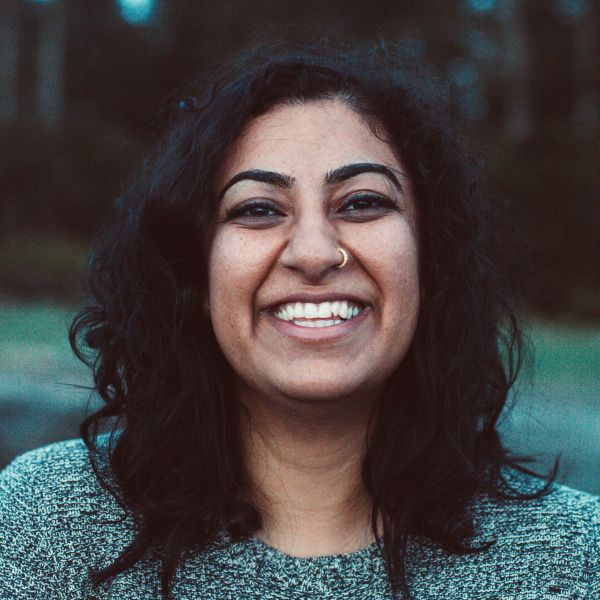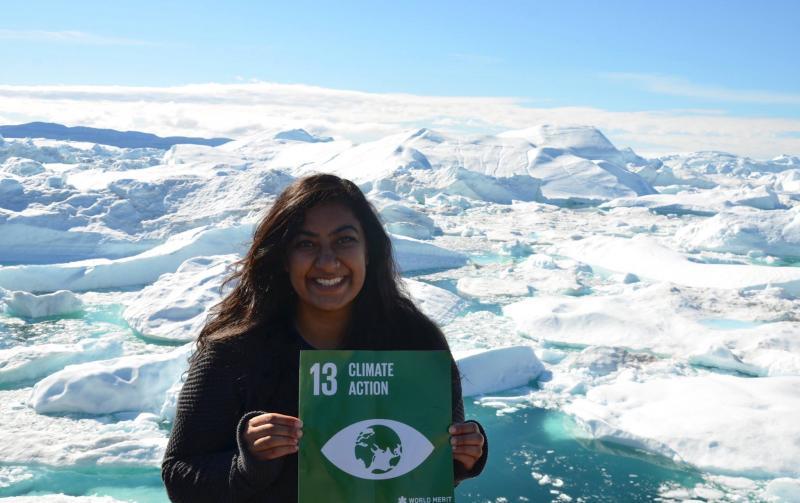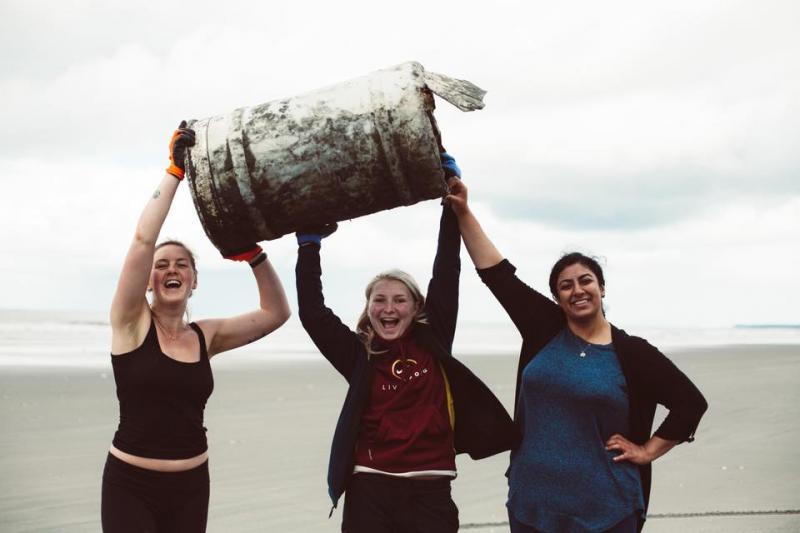Image

Medicine Hat, AB, Canada SEE OTHER BIOS HERE
Age: 24
Jasveen is passionate about the polar regions, oceans, and how best to engage youth in these spaces.
Tell us about yourself!
I was born in Vancouver but raised in Medicine Hat, Alberta, which is known for its natural gas deposits and has thus been dubbed “the gas city,” or more popularly “hell’s basement”. I loved growing up in Medicine Hat, exploring the prairies and being so close to the mountains. It, however, was not a place that emphasized environmental stewardship. In school, we learned about the basics of global warming, but our role in this crisis was never explained. I learned about anthropogenic climate change and the climate crisis through film and literature. I was able to build upon what I was learning in school through these mediums. My curiosity for the environment and nature led me to the Atlantic Ocean (indeed, Canada’s Ocean playground), where I completed a B.Sc. in Biology and Environment, Sustainability and Society.

I have recently wrapped up my year with Ocean Bridge as a member of their 2018 cohort. I was one of 40 youth from across Canada that was selected to be part of this program where we worked on ocean conservation, ocean literacy and ocean health projects from coast to coast to coast. Working closely with Ocean Wise, I helped facilitate service projects across the country by and for youth. The projects included Oceans Arcade (day of learning about learning to code video games focusing on at-risk Pacific Ocean species) and Oceans Month (a month-long celebration with over 14 events and workshops that focused on ocean literacy, nature and youth leadership). I have also been involved with Our Poles Our Planet (OPOP), leading OPOP’s Halifax conference and serving as the National Outreach Director to engage hundreds of youth across Canada in a day of polar education and action.
What inspired you to become a champion for environmental education?
I’m not sure that I would consider myself to be a champion per say, but rather an explorer. I’d say that my path has been one of self-discovery. From the sciences to sustainability, and a little bit of everything in between, I have been able to explore and learn about the earth in such meaningful ways. Five years ago, I participated in an expedition with Students On Ice to Antarctica, where I met youth and educators from around the world and was able to learn in ways I never had before.
There was one particular moment from that expedition that I still think of very often. Towards the end of the trip, we landed on Bailey Island, which is home to half a million chinstrap penguins. As we explored the island, watching penguins interact and trying to spot newborn chicks, we stumbled across a plastic water bottle between nests. In that moment, I felt the connectedness of the world – that our decisions and actions not only impact our own communities, but also places as isolated and pristine as the Polar Regions.
Since then, I have always tried to have a meaningful and positive impact. This drive has led to me many opportunities and collaborations across Canada and the world. From workshops on the SDGs, to a conference bringing Polar knowledge and research to communities across Canada – the central themes of my projects and passions are storytelling, education, and community engagement.

What advice would you give to the next generation of leaders that are looking to bring about positive change in their communities through EE?
When I started my environmental journey, I wasn’t sure where to start or how to use the skills and tools that I had. So, I began with getting involved with groups and organizations around me. Through that, I was able to learn about the issues my community was facing, the topics that were not being discussed, and the skills that I needed to develop. I encourage you to always be learning – there is so much available to us outside of a classroom, in books, from our peers, and especially from nature.
Some other tips:
- Advocate for specific spots and spaces for youth – it’s important that we have inclusive platforms where our voices can be heard, rather than have someone make those decisions for us
- Share your passions and stories with anyone and everyone – you never know what connections you will make
- Apply to any and all opportunities that you come across – especially those that you think you’re not qualified for!
- Hold yourself accountable – set small and large goals and continuously check in with yourself
What keeps you motivated, inspired, or hopeful for the future?
Having time in nature is very important to me. It’s difficult to access it from time to time, but it’s an important balance to have in life. With the current state of the climate crisis, I think it’s very easy to be overwhelmed by the magnitude of the issues that we are facing. Climate burnout is very real, and we live in a society that is very ‘hustle’ based. As important as it is to work towards your missions and your goals, it’s just as important to pause and reflect. So, walking through forests, climbing mountains, or swimming in the oceans is where I am able to ground myself, reflect, and recharge.
As for inspiration, I would say that my family and friends are what keep me motivated and hopeful for the future. I am so fortunate to have such an inspiring and passionate community that reaches from the corners of Canada to places like Australia. My network is filled with so many incredible youth who are having a positive impact globally. When I see the obstacles that they face and how they overcome them, it keeps me motivated to continue to do what I do.
If you could be any animal or plant, what would you be and why?
A willow tree. They symbolize imagination, intuition, and vision, which I think are important values to have. There is also something so calming about willow trees and their drooping branches, that make them so inviting to climb and play on.
SIGN UP FOR 30 UNDER 30 UPDATES